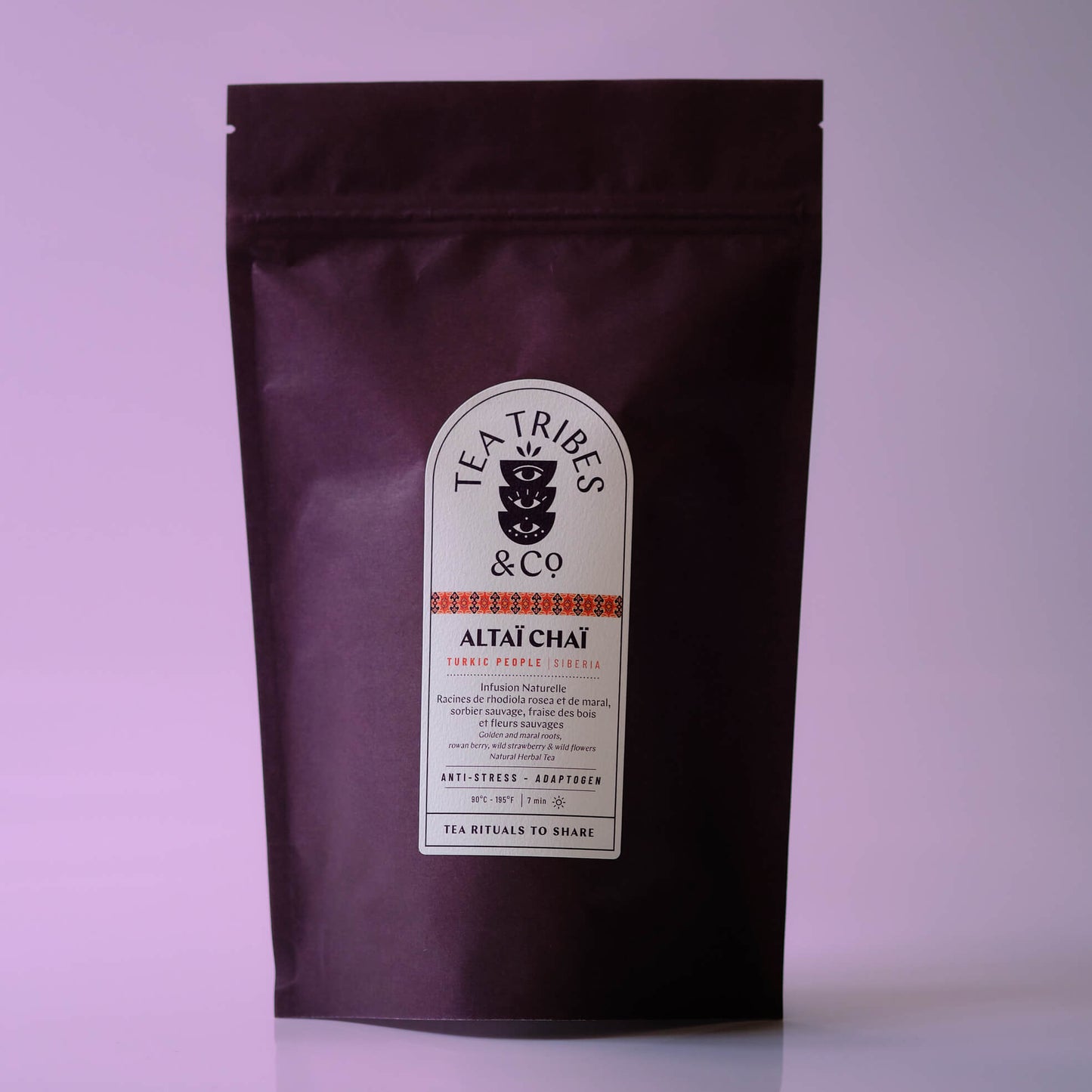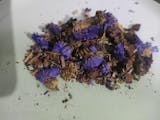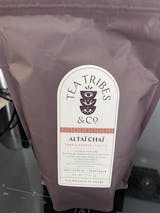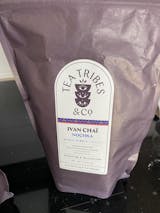TURKIC PEOPLE / SIBERIA
ALTAÏ CHAÏ
ALTAÏ CHAÏ
ANTI-STRESS - ADAPTOGEN
5.0 / 5.0
(7) 7 total reviews
Couldn't load pickup availability
Natural infusion of rhodiola rosea and maral roots, wild rowan berry, wild strawberry leaf and wild flowers.
- Helps overcome stressful situations
- Regulates overall mood
- Tonifie le corps et stimule les capacités de travail mental
Description & history of the ALTAÏ CHAÏ
Description & history of the ALTAÏ CHAÏ
Inherited from the Turkic peoples, the Altai Chai recipe combines plants and adaptogenic roots. These help to tone the body, increase its resistance to stress and regulate mood. No wonder they have been used by Altai hunters for generations to resist the harshness of winter and have the courage to pursue their prey, without sleeping, for several days. A woody, fruity and floral infusion particularly popular for its anti-stress action.
Notes:fruity, floral and woody.
Ingredients, Preparation & Use
Ingredients, Preparation & Use
Ingredients: Wild strawberry leaf (27%), wild rowan berry (25%), maral root (13%), rhodiola rosea root (13%), wild mallow (13%), forget-me-not (9%) .
Artisanal picking from Siberia exclusively
100% natural - No added flavors or sugar - THEINE FREE.
Preparation: 2 large tablespoons for 1 liter of pure water brought to 90. Infusion 7 to 10'.
Use: As a 2 or 3 week treatment, throughout the day (avoid after 6 p.m., for sensitive people).
A word from the Tea-Triber
A word from the Tea-Triber
Julia's word:
“The Altai region is the cradle of the Turkic peoples (part of whom migrated to give birth to today's Turkey). Having borders with Mongolia, China and Kazakhstan, various influences have been mixed there in terms of the consumption of teas and infusions. The territory itself provides many varieties of plants that are gathered in the wild, in immense meadows, the forest or on the mountainside. Many of these plants are called adaptogens because, if consumed regularly, they improve the body's ability to recover from stressful situations that have been experienced, or to prepare to respond to them.
Adaptogenic plants (or “superherbs”) have both a toning effect and regulate mood, which is why we speak of a global action on their part on the body. They have been consumed for centuries in the Altai region (they are also present in Chinese and Ayurvedic medicines), but the term adaptogen only appeared in 1947, thanks to the Soviet scientist Dr. Nikolai Lazarev . The applications of his research were very varied, first to soldiers to strengthen their resistance to the stress of war, later to athletes participating in the Olympic Games, to cosmonauts, etc.
This shows to what extent the very ancient recourse of the Turkic people to the powers of Altai plants has been validated by the modern era.
I have assembled some of the most effective plants in this recipe, while taking care to make it very pleasant to drink.



Cette tisane est vraiment telle que présentée sur le site : j'ai été extrêmement et agréablement surprise ! L'odeur est particulière, un mélange d'herbe sèche et de baies (on sent très bien le sorbier et la fraise).
Pour l'effet adaptogène et anti stress, c'est trop tôt pour le dire, mais le plaisir visuel et gustatif est bien là
ALTAÏ CHAÏ
ALTAÏ CHAÏ
délicieux
Merci, cela fait vraiment plaisir, car avec une forte présence de racines de plantes incroyables, comme la racine de rhodiola rosea et la racine de maral (des plantes adaptogènes puissantes), ce n'était pas évident que le résultat final soit agréable. Nous avons visé d'abord l'efficacité de la recette, en étant strictement fidèles à son ancrage chez les peuples de l'Altaï. Elle présente ainsi des notes complexes, un peu terreuses forcément. Un goût d'artichaut. Ravi qu'elle vous plaise !






